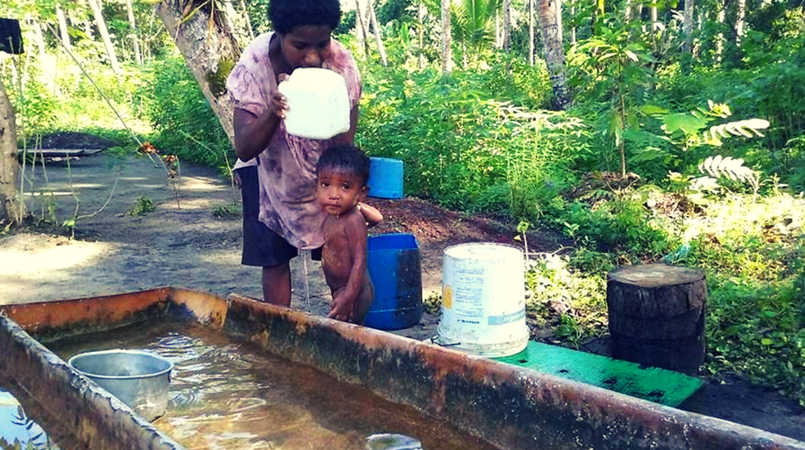
Village life is simple, you only need the basics of food, water and shelter.
For a mother in the village, water is vital for survival but accessing clean, drinking water during the dry seasons could mean walking, driving, paddling or traveling by boat over a certain distance to fetch that precious necessity.
For women in island atolls, water becomes a big need when tanks and containers dry up.
Mother-of-two, Regina George, of Bipi Island in Manus, is one of those privileged ones who is now having and will have access to clean drinking water during the dry season.
This has been made possible through the use of reverse osmosis technology, which involves converting beach well water using solar-powered desalination plants to fresh water. The plants are manufactured in Japan and installed by Sojitz Australia Limited.
Manus is the first to benefit from this pilot technology, courtesy of the Japanese government and the Pacific Environment Community (PEC) Fund through the Pacific Island Forum Secretariat in Fiji.
K15 million was spent in the project. K12 million was from the PEC funds while National Planning put K3 million into the project.
"Previously during dry season, we traveled to mainland Manus to fetch water. Now we have water on the island," George said.
It's an hour by boat during fine weather to the mainland, where they fetch water.
But now, that trip will not be made. In fact, both the product and waste water of the desalination plant is put to use.
The desalinated water is used for drinking while the waste water, which is still clean, is used for washing and doing laundry.
10 plants were installed on Mbuke, Whal and Bipi islands after feasibility studies were conducted.
Project coordinator Tom Anayabere has spent two years in Manus and successfully delivered it in July this year.
Anayabere said three other islands, Nauna, Mal and Aawa, will have their plants delivered in the coming months.
"Otherwise, the 10 plants are working well. We've trained the locals so it's up to them to make it sustainable and we hope the Manus Provincial Government also comes into place to assist them," said Anayabere.
For the four plants in Mbuke and Whal, councilor Tapas Selarn Kaluwin said they will be raising funds to help them maintain the plants’ operation.
"We are happy with the project. We have started using them," he added.
The plants’ filtration needs to be replaced every six months and Sojitz commercial manager, Paul Kone, said as the construction company, they will return to the island over the next 2 years to monitor the equipment.
It was formally handed over to the Manus Provincial Government, through the Minister for Planning, Richard Maru, on Tuesday.
The Japanese Ambassador to PNG, H.E. Satoshi Nakajima was also on Bipi Island on Tuesday to hand over the project to Minister Maru.
(George using the water on Bipi Island. The waste water, which is cleaner than beach well water, is stored in kayaks and used for washing and laundry)
